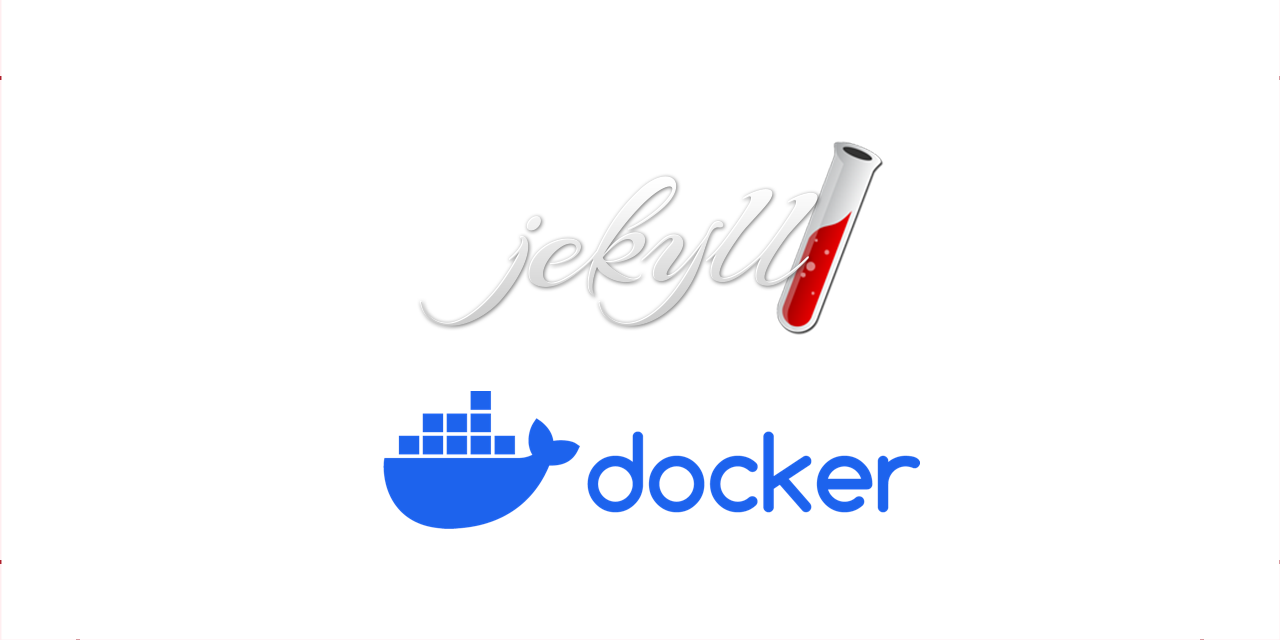Jekyll Docker

Docker image to deploy Jekyll v4.3.3 on GitHub Pages
Jekyll Docker is a software image that has Jekyll and many of its dependencies ready to use for you in an encapsulated format. It includes a default set of gems, wrappers and extra packages meant to be used by people who are deploying their Jekyll builds to another server with a CI.
Image Types
-
jvconseil/jekyll-docker: Includes tools. -
`jvconseil/jekyll`: Standard image. -
`jvconseil/jekyll-minimal`: Very minimal image.
Builder
The builder image (jvconseil/jekyll-docker) comes with extra stuff that is not included in the standard image, like lftp, openssh and other extra packages meant to be used by people who are deploying their Jekyll builds to another server with a CI.
Usage
export JEKYLL_VERSION=4.3.3
docker run --rm \
--volume="$PWD:/srv/jekyll:Z" \
-it jvconseil/jekyll-docker:$JEKYLL_VERSION \
jekyll build
Standard (unsupported)
The standard images (jvconseil/jekyll) include a default set of “dev” packages, along with Node.js, and other stuff that makes Jekyll easy. It also includes a bunch of default gems that the community wishes us to maintain on the image.
Usage
export JEKYLL_VERSION=4.3.3
docker run --rm \
--volume="$PWD:/srv/jekyll:Z" \
-it jvconseil/jekyll:$JEKYLL_VERSION \
jekyll build
Quick start under Windows (cmd)
set site_name=my-blog
docker run --rm --volume="%CD%:/srv/jekyll" -it jvconseil/jekyll sh -c "chown -R jekyll /usr/gem/ && jekyll new %site_name%" && cd %site_name%
Quick start under Linux / Git Bash
If you are under linux skip export MSYS_NO_PATHCONV=1. It is added for compatibility. You can check here.
export site_name="my-blog" && export MSYS_NO_PATHCONV=1
docker run --rm \
--volume="$PWD:/srv/jekyll" \
-it jvconseil/jekyll \
sh -c "chown -R jekyll /usr/gem/ && jekyll new $site_name" \
&& cd $site_name
Minimal (unsupported)
The minimal image (jvconseil/jekyll-minimal) skips all the extra gems, all the extra dev dependencies and leaves a very small image to download. This is intended for people who do not need anything extra but Jekyll.
Usage
You will need to provide a .apk file if you intend to use anything like Nokogiri or otherwise, we do not install any development headers or dependencies so C based gems will fail to install.
export JEKYLL_VERSION=4.3.3
docker run --rm \
--volume="$PWD:/srv/jekyll:Z" \
-it jvconseil/jekyll-minimal:$JEKYLL_VERSION \
jekyll build
Rootless Containers
If you are using a rootless container management system, you can set the JEKYLL_ROOTLESS environment variable to any non-zero value. For example, you can use the following to initialize a new jekyll project in the current directory using podman.
podman run -ti --rm -v .:/srv/jekyll -e JEKYLL_ROOTLESS=1 docker.io/jvconseil/jekyll jekyll new .
Server
For local development, Jekyll can be run in server mode inside the container. It will watch for changes, rebuild the site, and provide access through its included web server. You can then check the results of changes by reloading http://localhost:4000/ in a browser.
Usage
docker run --rm \
--volume="$PWD:/srv/jekyll:Z" \
--publish [::1]:4000:4000 \
jvconseil/jekyll \
jekyll serve
Dependencies
Jekyll Docker will attempt to install any dependencies that you list inside of your Gemfile, matching the versions you have in your Gemfile.lock, including Jekyll if you have a version that does not match the version of the image you are using (you should be doing gem "jekyll", "~> 4.3.3" so that minor versions are installed if you use say image tag “3.7.3”).
Updating
If you provide a Gemfile and would like to update your Gemfile.lock you can run
export JEKYLL_VERSION=4.3.3
docker run --rm \
--volume="$PWD:/srv/jekyll:Z" \
-it jvconseil/jekyll:$JEKYLL_VERSION \
bundle update
Caching
You can enable caching in Jekyll Docker by using a docker --volume that points to /usr/local/bundle inside of the image. This is ideal for users who run builds on CI’s and wish them to be fast.
My Gems Aren’t Caching
If you do not diverge from the default set of gems we provide (read: add Gems to your Gemfile that aren’t already on the image), then bundler by default will not create duplicates, and cache. It will simply rely on what is already installed in $GEM_HOME. This is the default (observed… but unconfirmed) behavior of bundle when using $GEM_HOME w/ $BUNDLE_HOME
Usage
export JEKYLL_VERSION=4.3.3
docker run --rm \
--volume="$PWD:/srv/jekyll:Z" \
--volume="$PWD/vendor/bundle:/usr/local/bundle:Z" \
-it jvconseil/jekyll:$JEKYLL_VERSION \
jekyll build
The root of the cache volume (in this case vendor) must also be excluded from the Jekyll build via the _config.yml exclude array setting.
Configuration
You can configure some pieces of Jekyll using environment variables, what you cannot with environment variables you can configure using the Jekyll CLI. Even with a wrapper, we pass all arguments onto Jekyll when we finally call it.
| ENV Var | Default |
|---|---|
JEKYLL_UID |
1000 |
JEKYLL_GID |
1000 |
JEKYLL_DEBUG, |
"" |
VERBOSE |
"" |
FORCE_POLLING |
"" |
If you would like to know the CLI options for Jekyll, you can visit Jekyll’s Help Site
Packages
You can install system packages by providing a file named .apk with one package per line. If you need to find out what the package names are for a given command you wish to use you can visit https://pkgs.alpinelinux.org. We provide many dependencies for most Ruby stuff by default for builder and standard images. This includes ruby-dev, xml, xslt, git and other stuff that most Ruby packages might need.
Sponsorship
If this project helps you, you can offer me a cup of coffee ☕️ :-)








